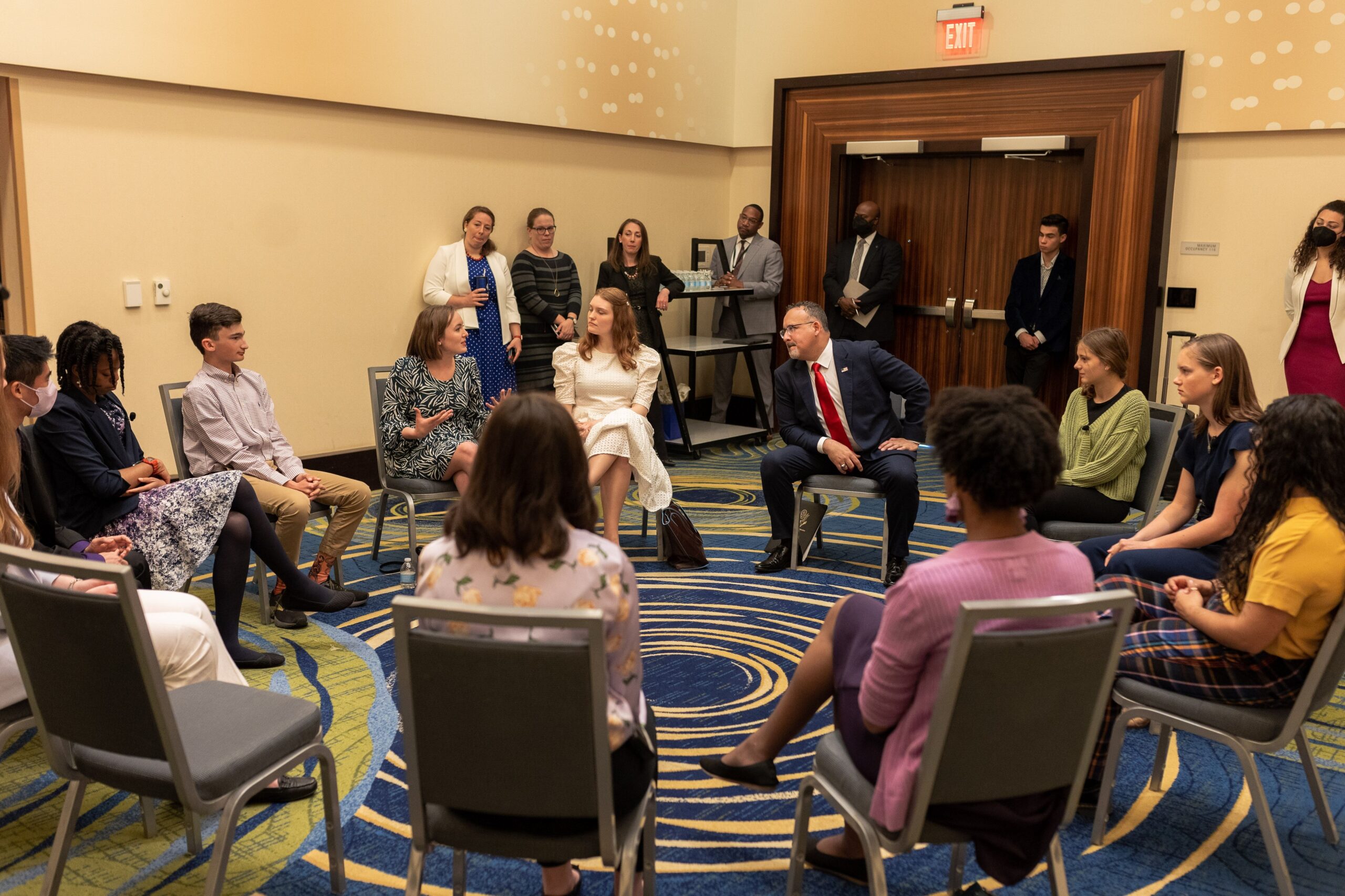About 40,000 military members and veterans with children ages 11 to 17 are being invited to participate in a Defense Department study that looks at the health and well-being of military-connected youth and their families.
These parents are getting their invitations by email and through postal mail.
Parents will be provided information about signing in to take the confidential online survey. The Study of Adolescent Resilience, or SOAR, is part of the largest and longest-running health research in military history, the Department of Defense Millennium Cohort Study.
Those invited to participate in the adolescent survey are already enrolled in the larger DoD Millennium Cohort Study of active-duty, reserve and National Guard service members and veterans, which began in 2001 and continues through 2068. There are about 40,000 service members and veterans enrolled in that study who have adolescent children. SOAR is open to the service member/veteran, the child, and the other parent, if applicable. The parent(s) and the adolescent are invited to fill out individual surveys.
“Our military youth have unique voices rooted in their military life experiences. The SOAR survey provides an opportunity to put their voices into action and provide necessary feedback to address military-connected adolescent needs,” said Patricia Montes Barron, deputy assistant secretary of defense for military community and family policy, in the announcement of the survey’s launch.
The Naval Health Research Center in San Diego is conducting the research, with funding from the Office of the Deputy Secretary of Defense for Military Community and Family Policy.
RELATED
:quality(70)/cloudfront-us-east-1.images.arcpublishing.com/archetype/SMYYKU3AVJCN7BUOANLPXDW3HM.jpg)
The Millennium Cohort Study involves periodic surveys over the long term, and also periodically recruits more service members to enroll, following them as they continue their career and after they leave the military. Participants in this SOAR survey may be asked to participate in follow-up surveys in the future, depending on available funding for further research.
While Department of Defense officials conducted surveys of military youth decades ago, those have been discontinued, and there are no known longitudinal studies of military teens over time.
The survey is open only to those who have been contacted with an invitation to participate, to protect the scientific validity of the study, which follows certain protocols.
The individual surveys take about 30 minutes to complete, and focus on how military experiences affect teens’ psychosocial adjustment, physical health, academic achievement, and educational and career aspirations. The surveys also focus on parenting experiences and the relationship between military-connected adolescents and their parents, according to the announcement.
Adolescents, for example, answer questions about career aspirations and how military experiences have affected different areas of their life. Parents answer questions about the number of moves the child has experienced, for example, and their communication with their child, according to the Millennium Cohort Study website.
Participants can skip any question they don’t want to answer.
Responses are confidential and aren’t shared with anyone in military commands, disability evaluators, insurance companies or anyone else not directly involved in data analysis. Only summary information based on the entire survey response will be published, not individual responses.
Each participant who completes a survey will receive a $10 gift card to Amazon.com, up to $40 per family.
Karen has covered military families, quality of life and consumer issues for Military Times for more than 30 years, and is co-author of a chapter on media coverage of military families in the book “A Battle Plan for Supporting Military Families.” She previously worked for newspapers in Guam, Norfolk, Jacksonville, Fla., and Athens, Ga.

